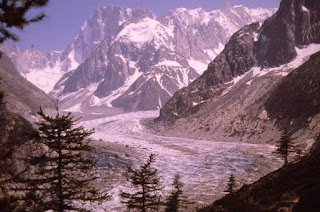 |
| Fallingwater, 8/21/2015 |
And, yes, I
had forgotten how tired I could get.
We had a long day with our two grandsons (Logan, 10; Carson, 6)--a long and
wonderful day with two remarkable boys. (I know, I know:
Everyone's grandkids are remarkable.)
A couple of years ago (yes,
years ago) we had given Logan on his birthday a trip to see Fallingwater (we had already given him books--and a Lego version of the house to build, too), and, as I wrote yesterday, time had just sort of flown by without our really doing anything about that gift. We were all too busy, you know?
But as we neared the beginning of another school year (he starts on Wednesday), we knew we'd better do it
now before the whirl of school consumed him.
So Joyce made the appointments, and the Weather Gods were smiling because yesterday, the twenty-first, was one of the most glorious days of the summer: sunny, blue skies, upper 70s. No humidity.
We drove down to their home in Green, Ohio (about a half-hour south of us), to pick them up, arriving about 9 (our appointment at Fallingwater was for 2 pm). We talked a while with our son, Steve, and his wife, Melissa, who were about to surrender to us the two most precious things in their lives. There is always some unspoken anxiety in such moments--as I well remembered from my own days of young fatherhood--handing our son over to grandparents. Worrying. (After we left, Steve called us twice in the first hour, and texts went back and forth, too.)
First stop: Starbucks in Green (Grandpa needed his Caffeine Fix), but soon we were on I-77, to I-76, then some rural roads that eventually got us to Fallingwater a little before one o'clock. The trip across was great. Logan (who sat in front with me) was fascinated with our Prius and its doodads; we told stories, recited poems, laughed, and the boys had questions:
How were they like their father when he was a little boy? That sort of thing. We talked about Frank Lloyd Wright, too--and the house we were about to see. And all the fun the boys recently had in South Carolina with their parents. Time and miles evaporated.
We thought we would be walking around the site for a while before our 2:00 appointment, but when we checked in, the clerk told us she had openings at 1:15, so we decided to go then on our hour-long guided tour--only about fifteen minutes away.
The boys were great during the tour--attentive and respectful (far more than I would have been at their ages)--and Logan chided me softly when I asked the tour guide what the family had done about sewage disposal in 1935 (when the house was built). Seems that the Kaufmanns (the department store in Pittsburgh--later, a chain) simply sent things into the stream, Bear Run, directly. Later--septic tanks. Now, they pump it out to ... the guide wasn't sure where.
We were not allowed to take pictures inside the house--you need the two-hour tour for that--but you can easily find hundreds of them online.
Of course--worried grandparents!--we were certain the boys were going to fall into the creek, and I pictured myself diving in, fully clothed (thank God!), to rescue them. But nothing that alarming occurred (in fact,
nothing alarming occurred, if you don't count Carson's spilling some red soda water on his white shirt! I got the
clear message from him that I was to say that I couldn't even
tell where it happened--and so I complied/lied ).
Joyce bought the kids some souvenirs in the gift shop (T-shirts, some pencils, etc.); I paid for lunch in the little cafe in the visitors' center (after the tour).
And then--all too soon--we were back in the car. Just before we got back on the Pennsylvania Turnpike, however, we
had to stop at a woodcarving place we'd seen earlier, where they had a Bigfoot out in front. (Our son
loves Bigfoot, and as a kid had a board game involving the creature; he's actually gone on Bigfoot hunts.)
So ... the boys paused with the Creature, who was kind enough not to eat them during the process.
I doubt, by the way, that we were the first tourists to stop at
both iconic sites ...
The trip home was more of the fun we'd had on the way--with Weariness (the boys', ours) becoming a new companion in the car. But except for one "adventure" finding a men's room "in time" (we did), the trip back to Green was more of the cruise of pleasure we'd been on since nine in the morning.
We got back a bit before seven, chatted some with Steve and Melissa, then roared for home (well, insofar as a a Prius
can roar) ... and bed.
Oh, our weary bones! Oh, our gratitude for the health to do this--for the gorgeous weather to accompany us--for the two little boys who energized us all day--for their wonderful parents who, for nearly ten hours, entrusted their treasures to us. Trusting us even in the face of Bigfoot!
 |
| The Old Man looks a little weary here! |








































